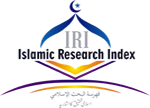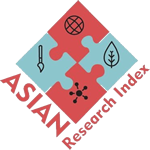نظرة نقدية في الترجمة الأردية؛ "تبلیغ دین" لـ "الأربعين في أصول الدين" للإمام الغزالي
A Critical View of Urdu Translation; "تبلیغ دین" of “al- Arbaʽīn Fī Uṣūl al-Dīn” by Imām al-Ġazzālīy
Abstract
Translation is a very eminent field of today’s modern linguistics; day to day it brings a lot of viewpoints based on people’s cultural phenomena. It is a field having solutions to all humanized problems because it is the only field where people from all walks of life meet with each other, listen and interact with each other at different levels. This field has all capacity to justify what is happening, what is going on, and why through transforming different thoughts, shaping diverse ideas, and globally interlinking like and unlike, matching and mismatching concepts.
The following research is based on critical translation, adopted some textual linguistic-based concepts and applied them to the chapters from the book; “al- Arbaʽīn Fī Uṣūl al-Dīn” by Imām al-Ġazzālīy which were translated by Al-Shiyekh Ashiq Ilahī. This research is going to prove that translation is not to make some transformation of thoughts, or it never stands equal to the source text. It, whether all the effort has been done, always lacks multiple signs. No one can utter that it is as same as originated; despite that, some tools must be kept in view while translating anything. If these tools are ignored, translation losses all worth.
Keywords: Transltion, linguistics, al- Arbaʽīn Fī Uṣūl al-Dīn
Published
Issue
Section
Copyright (c) 2022 Al-Meezan Research Journal

This work is licensed under a Creative Commons Attribution 4.0 International License.



